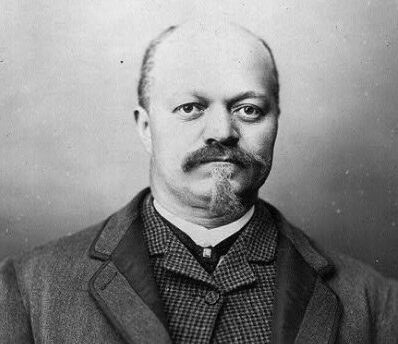
February 21, 2025
Here’s A Look Inside The First Black-Owned Textile Mill Founded By Warren Clay Coleman
Black History lives on....
In 1900, Warren Clay Coleman was considered “the richest Black man in America” after opening the first Black-owned and -operated textile factory in the United States, which still stands today, according to Charlotte Observer reports.
Coleman took his love for textiles and opened a shop in 1897 in Concord, North Carolina, right outside of Charlotte. Born into slavery in 1849, Coleman used his skill sets to create opportunity for those who looked like him as, during the time, Black people weren’t permitted to work in mills owned by white men like John Odell, James Cannon, and others “except for very menial labor,” according to author Norman McCullough, Sr. who wrote, “Warren Clay Coleman: The Leader of the First Black Textile Mill In America.
The mill became popular among other Black dignitaries, such as historian and civil rights activist W.E.B. Dubois. He included images of the mill in an exhibit highlighting Black progress in the U.S. at the 1900 Paris Exposition.
In addition to the 196,000-square-foot mill, he provided necessary resources for his 300 workers by building Price Temple church, now known as Price Memorial A.M.E Zion. He also built 100 homes for the team and a 17-acre cemetery.
However, some of the success was short-lived due to high cotton prices causing financial difficulties for Coleman. A white cotton merchant took over management for some relief, later hiring white workers. After Coleman died in 1904, white philanthropist Washington Duke purchased the mill at a sheriff’s sale for only $10,000. However, a century and some years later, Coleman’s legacy lives on as the mill stands in the present day in the Logan neighborhood, a historically Black community.
In 2022, the property was turned into affordable housing due to a partnership with Winston-Salem-based developer Sari and Company called the Coleman Mill Apartments. The landmark received hundreds of visitors who stopped and took photos of a plaque honoring Coleman in the main building. Years prior, in 2015, Coleman and the mill received national recognition, being listed in the National Register of Historic Places, according to WFAE 90.7.
Coleman’s descendant, his great-great-great-nephew, Rodney Smith, says there is always a sense of pride whenever he drives by the landmark. “Every time I drive on WC Coleman, I feel a sense of pride for what he accomplished and bestowed on the Concord area,” Smith said.
“My children have seen pictures of him, and the Carolina Mall has a picture of him hanging. Every time my kids go by it, especially my son, he says, ‘That’s my uncle.’”
A portion of U.S. 601 was named Warren C. Coleman Boulevard in 2001. Smith’s brother, Michael, hoped that by listing the property in the national register, it would be exempt from being torn down in the future.
RELATED CONTENT: